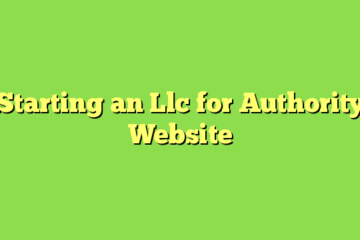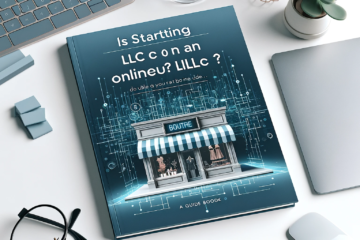Are you considering starting an LLC for your car dealership? Discover the benefits of forming an LLC and learn the steps to register your business.
This article will guide you through choosing a name and structure, filing necessary paperwork, and maintaining compliance for a successful car dealership LLC.
Don’t miss out on the advantages and opportunities that come with establishing your own limited liability company. Get started today!
Personal liability protection is a major benefit of forming an LLC for a car dealership. Choosing a name that complies with state regulations and reflects the nature of the dealership is important. Location selection should consider factors such as accessibility, visibility, and alignment with the target market. Effective marketing strategies, compliance with legal requirements, and regular review of the business plan are crucial for maintaining success with a car dealership LLC.
Benefits of Forming an LLC for Car Dealerships
If you’re considering starting a car dealership, forming an LLC can provide numerous advantages and protections.
One of the key benefits of forming an LLC for your car dealership is personal liability protection. By operating as an LLC, your personal assets are separate from the business assets, meaning that if the dealership faces legal issues or financial difficulties, your personal assets will generally be shielded from any claims or lawsuits. This protection can give you peace of mind and help safeguard your personal wealth.
Another advantage of forming an LLC is the flexibility it offers in terms of management and taxation. LLCs have the option to choose how they want to be taxed, either as a sole proprietorship, partnership, or corporation. This allows you to select the tax structure that best suits your specific needs and goals. Additionally, LLCs have less stringent management requirements compared to corporations, offering you more freedom and autonomy in running your car dealership.
Furthermore, forming an LLC can enhance your business’s credibility and professionalism. Operating as an LLC demonstrates to customers, lenders, and suppliers that you have taken the necessary steps to establish a legally recognized and organized business entity. This can help build trust and attract potential customers and business partners, ultimately contributing to the growth and success of your car dealership.
Steps to Registering an LLC for Your Car Dealership
To register an LLC for your car dealership, you’ll need to follow several steps that will ensure your business is legally recognized and organized.
The first step is to choose a name for your LLC that complies with your state’s regulations. Check with your state’s Secretary of State office to see if your desired name is available.
Next, you’ll need to file the necessary paperwork with the Secretary of State office. This typically includes articles of organization, which outline the basic information about your LLC. You may also need to submit a certificate of formation and pay the required LLC registration fees.
Once your paperwork is filed and approved, you’ll need to obtain an employer identification number (EIN) from the IRS. This number is used to identify your LLC for tax purposes.
Additionally, you may need to apply for any necessary licenses or permits required for your car dealership, such as a dealer license or sales tax permit. It’s important to research and understand the legal requirements for LLC formation in your specific state.
Choosing a Name and Structure for Your Car Dealership LLC
When choosing a name and structure for your car dealership LLC, it’s important to carefully consider the branding and legal implications associated with your business. The name you choose should reflect the nature of your dealership and appeal to your target market. It should also be unique and memorable, helping you stand out from the competition. Additionally, you need to consider the legal requirements for naming your LLC, such as avoiding any trademark infringement or misleading names.
In terms of the structure of your car dealership LLC, you have several options to choose from. One common structure is a single-member LLC, where you’re the sole owner of the business. This structure offers simplicity and flexibility in terms of management and decision-making. Another option is a multi-member LLC, which involves having multiple owners who share the profits and responsibilities of the business.
When deciding on a location for your car dealership, it’s important to consider factors such as accessibility, visibility, and target market. Choose a location that’s easily accessible to your customers, preferably near major roads or highways. Additionally, consider the demographics of the area and ensure that it aligns with your target market.
Financing options are crucial for a car dealership. You’ll need to secure funding to purchase inventory, lease or purchase a location, and cover operational expenses. Explore different financing options such as bank loans, leasing arrangements, or partnerships with financial institutions. It’s important to carefully evaluate these options and choose the one that best suits your business needs and goals.
Filing the Necessary Paperwork for Your Car Dealership LLC
To file the necessary paperwork for your car dealership LLC, you’ll need to gather and complete various legal documents. Understanding the legal requirements for forming a car dealership LLC is crucial to ensure a smooth and successful filing process.
The first step is to draft and file your Articles of Organization with the appropriate state agency. This document establishes your LLC and includes important information such as the name of your business, its purpose, and the names of its members.
Additionally, you’ll need to obtain an Employer Identification Number (Get EIN) from the Internal Revenue Service (IRS). This unique number is used for tax purposes and is necessary to open a bank account and hire employees.
Other important documents to consider include an Operating Agreement, which outlines the rights and responsibilities of the members, and any necessary permits or licenses required by your state or local government.
When filing the paperwork for your car dealership LLC, it’s important to avoid common mistakes such as incomplete or inaccurate information, missing deadlines, or failing to obtain the necessary permits. Taking the time to understand the legal requirements and being meticulous in completing the paperwork will help ensure a successful and legally compliant car dealership LLC.
Maintaining Compliance and Success With Your Car Dealership LLC
By maintaining compliance and striving for success with your car dealership LLC, you can ensure long-term growth and profitability. Achieving financial stability is crucial for the sustainability of your business. One way to achieve this is by implementing effective marketing strategies for your car dealership LLC.
When it comes to marketing your car dealership, it’s important to understand your target audience and tailor your strategies accordingly. Utilizing digital marketing techniques such as search engine optimization (SEO), social media advertising, and email marketing can help you reach a wider audience and generate leads. Additionally, partnering with local businesses and participating in community events can increase your dealership’s visibility and attract potential customers.
Compliance is another vital aspect of maintaining a successful car dealership LLC. Ensuring that you adhere to all legal and regulatory requirements will help you avoid penalties and maintain a positive reputation in the industry. This includes obtaining the necessary licenses and permits, keeping accurate records, and following ethical business practices.
Regularly reviewing and updating your business plan is also essential for success. This will allow you to adapt to market trends, identify new opportunities, and make informed decisions. Furthermore, monitoring key performance indicators (KPIs) such as sales, inventory turnover, and customer satisfaction will help you track your progress and make necessary adjustments to achieve your goals.
Conclusion
In conclusion, forming an LLC for your car dealership offers numerous benefits including liability protection and tax advantages.
By following the necessary steps to register your LLC, choosing a name and structure, and filing the required paperwork, you can ensure legal compliance and set your dealership up for success.
Remember to maintain ongoing compliance and stay informed about industry regulations to maximize the benefits of your car dealership LLC.
Frequently Asked Questions
What Are the Tax Benefits of Operating a Car Dealership as an Llc?
You can enjoy tax benefits by operating a car dealership as an LLC. Some advantages include tax deductions for business expenses and the ability to pass through profits and losses to the owners.
Can I Use a Personal Vehicle as Part of My Car Dealership Llc?
Yes, you can use a personal vehicle as part of your car dealership LLC. Doing so may provide tax advantages, but it’s important to consult with a tax professional to ensure compliance with regulations.
Are There Any Specific Regulations or Licenses Required for Operating a Car Dealership Llc?
There are specific regulations and licensing requirements for operating a car dealership LLC. It is important to familiarize yourself with these rules in order to ensure compliance and the smooth operation of your business.
Can I Have Multiple Members in My Car Dealership Llc?
Yes, you can have multiple members in your car dealership LLC. This allows for shared car dealership ownership and brings advantages of partnership such as shared responsibilities, resources, and expertise.
What Are the Potential Liabilities and Risks Associated With Running a Car Dealership as an Llc?
You should consider the potential liability risks and legal obligations when running a car dealership as an LLC. It’s important to be aware of the potential legal consequences and take necessary precautions to protect your business.









